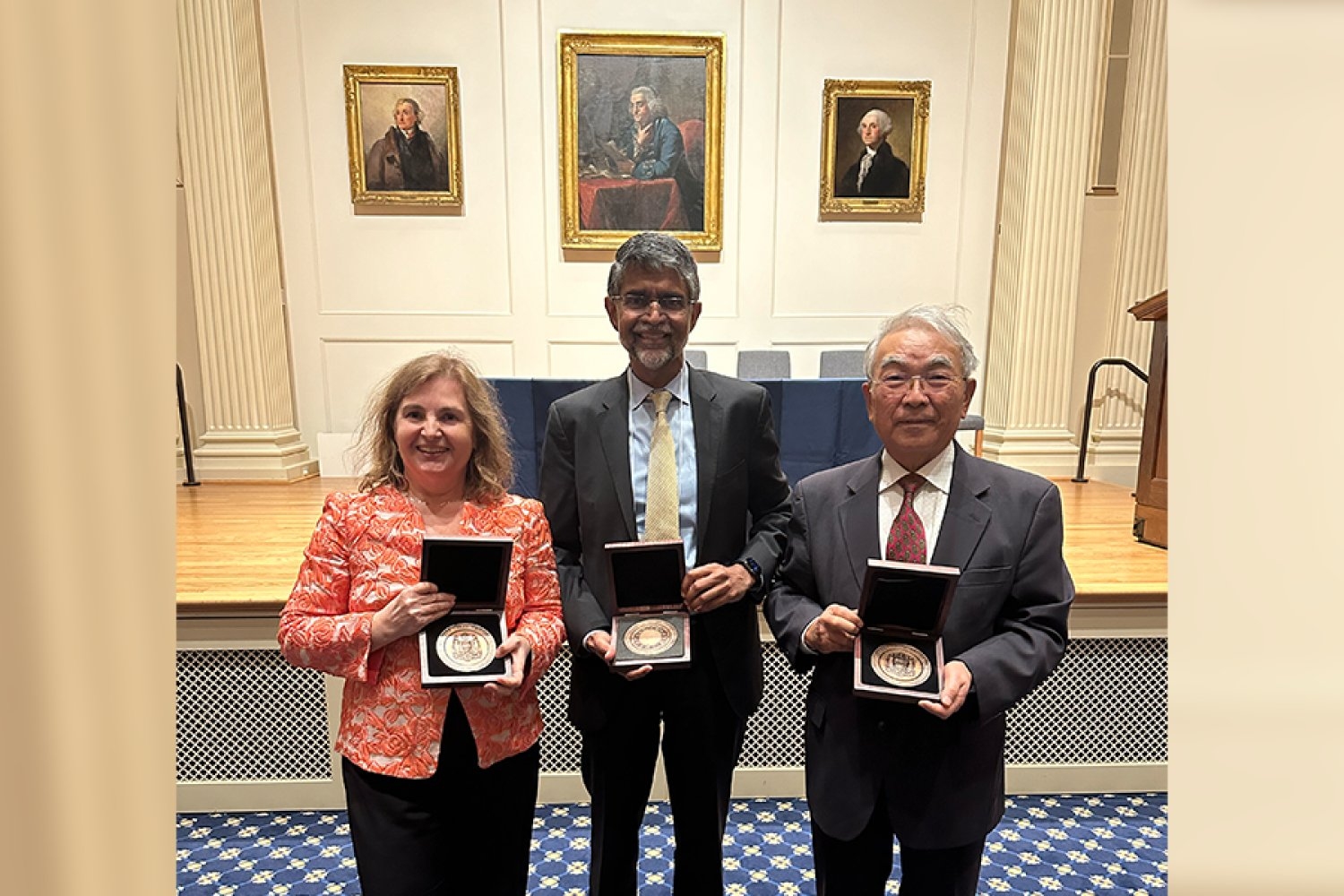
Daniela Rus, director of MIT’s Laptop Science and Synthetic Intelligence Laboratory and MIT professor {of electrical} engineering and laptop science, was lately named a co-recipient of the 2024 John Scott Award by the board of administrators of Metropolis Trusts. This prestigious honor, steeped in historic significance, celebrates scientific innovation on the very location the place American independence was signed in Philadelphia, a testomony to the enduring connection between scientific progress and human potential.
The Scott Award, the primary science award in America established to honor Benjamin Franklin’s scientific legacy, acknowledged Rus alongside professors Takeo Kanade from Carnegie Mellon College and Vijay Kumar from the College of Pennsylvania. The award acknowledged her robotics analysis that has essentially modified our understanding of the sphere, increasing the very notion of what a robotic may be.
Rus’ work extends past conventional robotics, specializing in creating machine intelligence that is smart of the bodily world via explainable algorithms. Her analysis represents a profound imaginative and prescient: creating robots as useful instruments that reach human energy, precision, and attain — as collaborative companions that may clear up real-world challenges.
In her speech, Rus mirrored on her time as a graduate pupil, the place she mused that the potential for clever machines lies within the synergy between the physique and mind. “A robotic’s capabilities are outlined by its bodily physique and the intelligence that controls it. Over the previous a long time, I’ve devoted my analysis to creating each the mechanical and cognitive techniques of robots, working alongside good college students, collaborators, and buddies who share this transformative imaginative and prescient,” she mentioned.
Her initiatives illustrate this dedication. The MiniSurgeon is a tiny ingestible origami robotic that may take away harmful button batteries from youngsters’s techniques. Mushy robotic creatures like fish and sea turtles allow unprecedented aquatic exploration. Modular robotic boats can self-assemble into bridges and platforms, demonstrating adaptive intelligence. Extra lately, she helped invent liquid neural networks, impressed by the elegantly easy neural system of a tiny worm. By designing algorithms that may function with as few as 19 neurons, Rus has proven how machines can navigate advanced environments with exceptional effectivity.
When requested about her most impactful work, Rus was unequivocal in saying it was not the steel robots, however the college students and researchers she was in a position to help and mentor. This assertion encapsulates her deeper mission: not simply advancing expertise, however nurturing the subsequent era of minds.
“The toughest issues in AI and robotics,” she says, “require long-term considering and dedication. A robotic should not solely understand the world however perceive it, determine find out how to act, and navigate interactions with folks and different robots.”
The John Scott Award celebrates not simply particular person achievement, but in addition the place scientific exploration meets compassionate innovation — as evidenced by earlier luminary winners together with Thomas Edison, Nikola Tesla, the Wright brothers, Marie Curie, Guglielmo Marconi, and 20 extra Nobel Prize winners.











